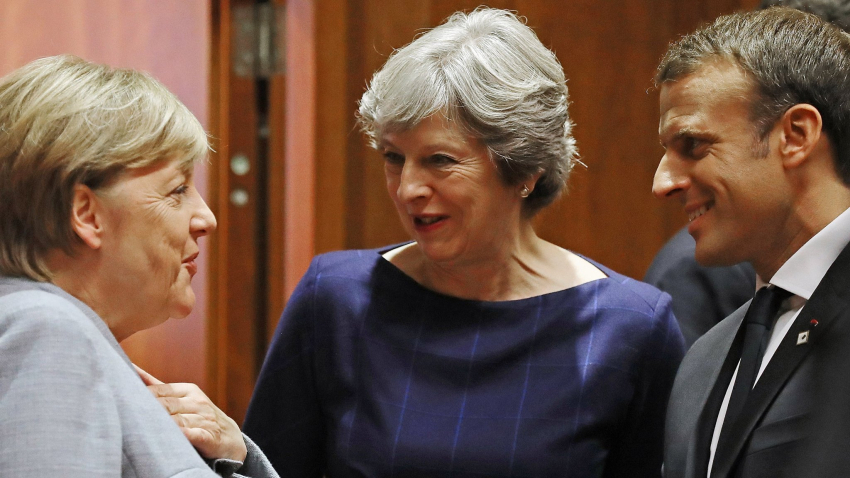LONDON – Britain, France and Germany have agreed that the Iran nuclear deal, that U.S. President Donald Trump has threatened to walk out from, remains the best way of stopping Tehran from gaining access to nuclear weapons, British Prime Minister Theresa May’s office said on Sunday.
In an official statement, the British government said May made separate telephone calls to French President Emmanuel Macron and German Chancellor Angela Merkel over the weekend, in which the leaders agreed to support the Joint Comprehensive Plan of Action (JCPOA).
“They committed to continue working closely together and with the U.S. on how to tackle the range of challenges that Iran poses – including those issues that a new deal might cover,” the statement said.
US President Donald Trump had decertified the Iran nuclear deal in October last year, however, he has set a deadline of May 12th for a final decision in this regard.
French President Emanuel Macron and German Chancellor Angela Merkel made whirlwind tours to Washington last week in a bid to cajole the Republican leader, stay in the deal, brokered during the Obama era in 2015.
Meanwhile, Trump administration has been signalling that it might walk out of the agreement or impose fresh sanctions on Iran, a spoiler regarding which was given by recently appointed Secretary of state, Mike Pompeo.
“Washington would abandon the nuclear deal unless talks with European partners yield improvements,” said Pompeo during his Middle East tour on Sunday.
“We’ve certainly made some (progress with the Europeans),” he claimed.
Rouhani Raises Concerns
Iranian President Hassan Rouhani had an hour-long conversation with French President Macron on Sunday in which both the leaders agreed to work together over the next few weeks to preserve the 2015 Iran Nuclear Deal.
According to a statement issued by Elysee Palace, Macron also said he hoped to broaden the discussions to include Tehran’s missile programmes, its nuclear activities beyond 2025 and the regional crisis in the Middle East.














